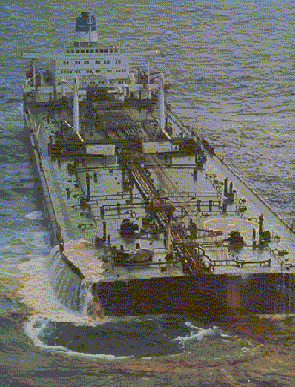The Kirki and the importance of oil spill kits and training

Few oil spills possess the same degree of fame as the Kirki. When this Greek-registered oil tanker met with difficulties off the coast of Western Australia back in 1991, the footage was unforgettable. The ship, sheered nearly in half and missing its bow, had set the surface of the sea alight, as arcing electrical cables ignited the light crude oil from the ship’s tanks.
It created a serious containment problem, as there was the potential of sullying WA’s coastline. The northwestern coast was in distinct danger of being inundated with several million gallon’s worth of crude oil if the cargo washed ashore. Only a fortuitous set of sea currents sent the bulk of the oil offshore, there to dilute and break up in the waters of the Indian Ocean. Luckily, the spill served to increase the awareness of the importance of oil spill kits and spill kit training.
Offshore oil spills play by a different rule book to those on land, but containment is still extremely vital. The most important aspect of remediation is to ensure that the product is stopped at its source, and that every effort is made to keep the oil from moving towards sensitive areas. In this case, the heavy sea state and remote location meant little of the lost oil was recoverable. Apart from towing the Kirki away from the coastline, preventing its remaining cargo from being lost, little was done.
In the aftermath of this accident, regulations were altered, requiring ships to provide a set of booms and other cleanup tools. This disaster, while causing considerable problems for WA sea life and offshore populations of birds and fish, has resulted in tighter restrictions on oil tankers. They are now obliged to be stronger and better inspected with regards to their ability to withstand heavy seas, while crews are trained in the deployment of booms and oil spill kits. The disaster, it is hoped, will provide a net positive for Australia’s coasts.
